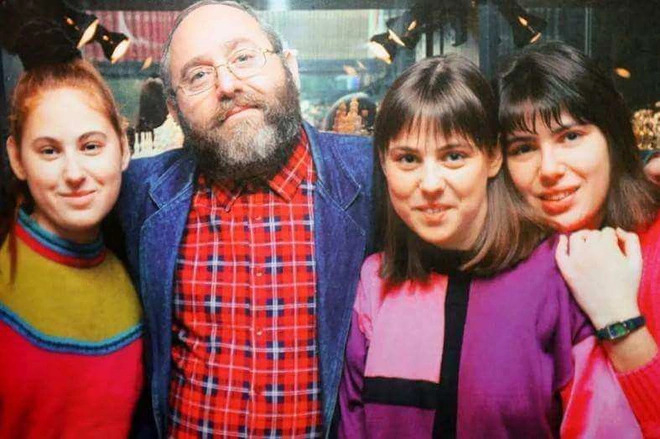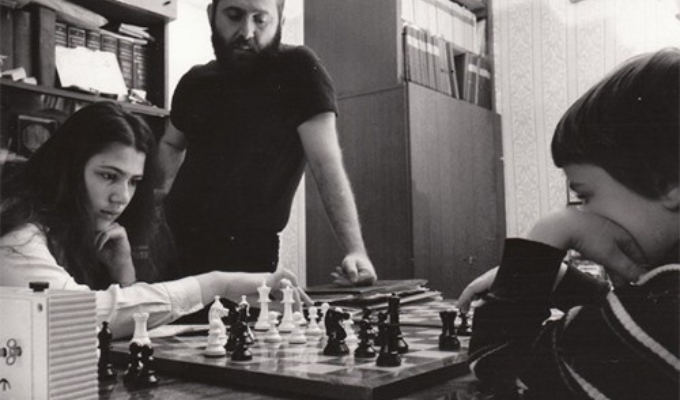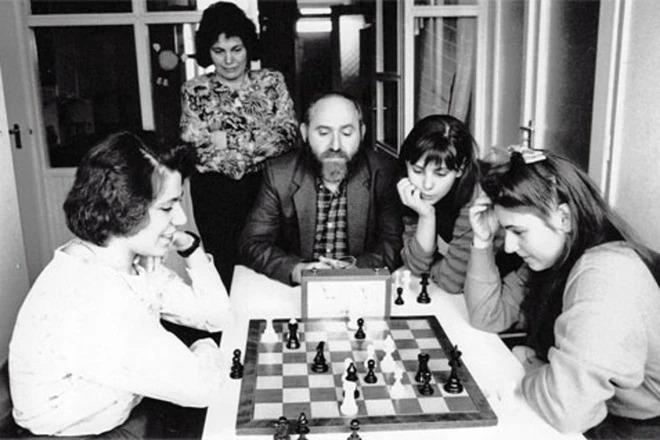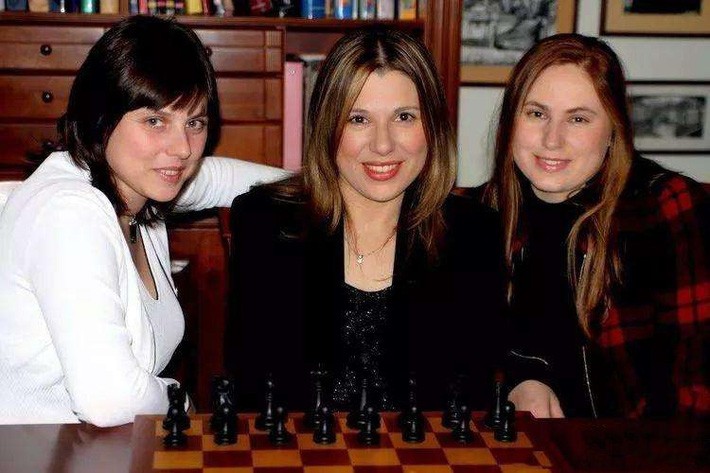With the desire to prove that "Geniuses are not born, but areeducated and trained", the Hungarian father did not hesitate to develop a plan to teach his children to become prodigies.
Any child can become a genius?
László Polgar, born in 1946, is a Hungarian educational psychologist. In the 1960s, Polgar was a psychology lecturer at a university. During this time, he read and researched many books on intelligence.
Once, Polgar read the hypothesis of American psychologist John Watson: "Give me a dozen healthy children, I can raise them to be excellent scholars or criminals as I wish". Polgar was extremely impressed by Watson's statement and decided to do this on his own children in the future. This experiment is called "cultivating genius" or "Polgar experiment".
In 1965, he met a Ukrainian teacher named Klara. He openly shared his project with her and she accepted. They married in 1969, and their first daughter, Susan Polgar, was born that same year. Two more girls, Sofia Polgar and Judit Polgar, were born in 1974 and 1976, respectively.

During the first years of his eldest daughter's life, Polgar did not interfere but tried to observe to discover and realize what she liked. Finally, one day, Susan's daughter, then 3 and a half years old, pulled a chess set out of a drawer and played with it passionately.
They both agreed that Susan loved chess and decided to train her to play this intellectual sport . Less than six months after learning to play chess, she was beating several adults.
Don't force your child to play chess.
For his eldest daughter Susan, she naturally loved chess. As for Sofia and Judit, Polgar decided to guide them in a subtle way. When Sofia was 5 and Judit was 4, Polgar decided to start the experiment of "cultivating genius" with his children.
Polgar used a little psychological trick to make his two younger daughters fall in love with chess. Whenever Susan played chess, Polgar would put her in a private room and close the door. Sofia and Judit were initially indifferent, but gradually became curious.
One day, Judit asked her father, "Why does Susan always go into her room for a few hours and then close the door? What is she playing in her room?" Polgar said, "Susan is playing chess, a game I've never played before."
"Why can't Sofia and the baby go out with you?" Judith asked.
"Then learn to play chess so you can go play with your sister in the room," Mr. Polgar "lured" his son.
In a simple way, this father has stimulated his children's curiosity and passion for chess. This is considered the "peer effect". Accordingly, younger siblings are often curious about what their older siblings do. If the older sibling sets an example, the younger siblings will follow suit.

With the "example" of her sister, combined with a strong curiosity and a desire to get into the room as soon as possible, Judit and Sophia began to learn chess almost at the same time. What pleased Laszlo Polga was that these two daughters played chess as quickly as the older daughter.
To train his daughters to become chess masters, Laszlo’s three daughters stopped going to school after the age of six. Instead, he hired a professor to teach them English, German, and advanced mathematics, and then periodically took exams to earn their certificates. He also bought more than 6,000 books and chess games and hung portraits of chess champions all over the house.
Every day, Polgar's children spend 5-6 hours playing chess, after playing table tennis, waking up early to exercise,... to improve their health. All three girls have to wake up at 6:00 a.m. and go to bed at 10:00 p.m. In addition, the three are not allowed to watch TV, except for news about chess matches and international chess lectures broadcast on Hungarian national television, scientific and educational programs related to cultural studies.

The results of the "experiment" left the public stunned.
Under the guidance of their parents, Mr. Polgar's children all became famous names in the chess world. Susan, became a famous child prodigy in the history of Hungarian chess. She was the women's world chess champion from 1996 to 1999, winning 10 Olympic medals (5 gold, 4 silver and 1 bronze). She was also the first woman in history to break the gender barrier by qualifying for the men's World Chess Championship in 1986.
Sofia, who won the national championship at the age of 7, was runner-up in the 1994 World Chess Championship. She was also once ranked as the sixth strongest female player in the world.
Meanwhile, the youngest, Judit, has been the most successful. She became a grandmaster at the age of 15. In 2005, she was the only woman selected to compete in a world championship tournament. Judit was also the woman with the highest ELO rating in the world from January 1989 to August 2015. She is recognized as the strongest female chess player in the world to date.

Polgar’s experiment, though controversial, had a brilliant result. Polgar’s three daughters did not object to their father’s experiment and decided to apply this parenting secret to their own children. In interviews, the three sisters said they had a happy childhood and felt no shame. They loved playing chess and felt they could never get enough of it.
"We know people are skeptical about the way our parents raised the three of us. Everyone looked at us strangely. But the three of us never felt constrained or bored. Chess was something we all chose and were passionate about. My family was always filled with laughter, a warm atmosphere, and love," Judit shared on Chessdailynews.
Source: https://giadinhonline.vn/nguoc-dong-du-luan-day-3-con-gai-thanh-thien-tai-co-vua-d202512.html































![[Photo] National Assembly Chairman Tran Thanh Man visits Vietnamese Heroic Mother Ta Thi Tran](https://vphoto.vietnam.vn/thumb/1200x675/vietnam/resource/IMAGE/2025/7/20/765c0bd057dd44ad83ab89fe0255b783)


































































Comment (0)